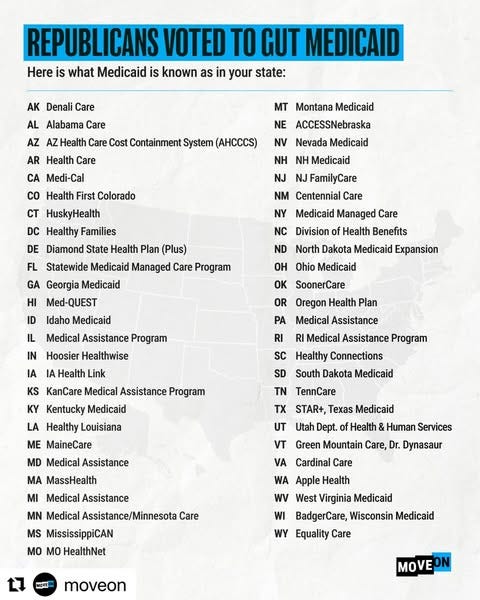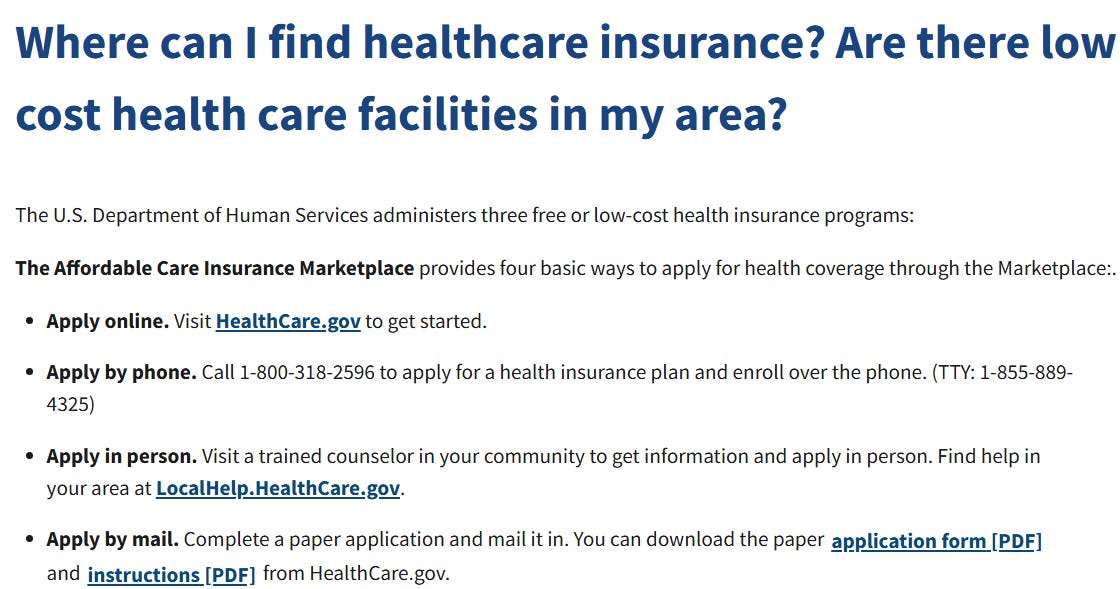I hate that in this country we have to worry about going bankrupt over medical bills—even for planned ones like having a baby (because we all know the unplanned can happen for even a ‘routine’ birth, leading to skyrocketing costs). Yet since we are one of the only highest income countries that doesn’t provide universal healthcare, here we are.
(This is kind of a downer way to start - sorry - but it’s important! Don’t stop reading!)
That’s why this week’s newsletter is focused on the financial side of pregnancy, and what you need to know about what’s on the chopping block, and how to advocate for your protection.
In the news: Medicaid cuts
Why am I talking about Medicaid in a pregnancy newsletter? Because Medicaid is the insurance that pays for 41% of all births in the United States (and it’s closer to 2/3 of all births in many southern states as you can see here).
Medicaid is the #1 program that gives pregnant people access to prenatal care and pays for their birth and postpartum care!
Medicaid saves our country so much money – for every $1 spent on family planning, for example, it saves the U.S. government $7.00.
Wait - what is Medicaid even called in my state?!
You’re not alone if you’re confused—many folks don’t know that the insurance they’re on is even considered Medicaid, because it has a different name in every state! See the image below. Knowledge is power.
We know that when someone has prenatal care and a pregnancy that is on their terms and timeline, they and their babies do MUCH better, have less complications, are more likely to avoid preterm birth, etc. NBD.
Here’s why I am writing about it and why you should care: the Republican budget plans to cut almost $1 trillion dollars in spending – most of which will almost certainly come from Medicaid.
If you want to see how much your district would lose, go here and scroll down to the table where you can put in your state or district to see just how much will lose. For example, in the Texas district where Houston belongs, residents will lose $2.2 BILLION dollars in Medicaid funding. This is bad, bad news for pregnant women, their babies, and their families.
(If someone is telling you these cuts aren’t guaranteed to come from Medicaid, please send them this to read).
Want to do something about it? Call your representatives (yes, really – it matters) and tell them you are against cutting Medicaid, the program that covers over 40% of pregnant people and over 50% of kids in this country. And that cutting it isn’t very pro-family of them. You can find your rep and how to contact them here.
Here’s a video where I break this down even more - and if you want to share it to get the word out, go for it!
Q&A: Lifting toddlers while pregnant??
Q: How much am I allowed to lift when I’m pregnant?
A: During pregnancy, there isn’t a strict weight limit for lifting, as no studies show that lifting a specific amount causes harm. However, it’s important to listen to your body—if something causes pain or discomfort, it’s a sign to take it easy. Lifting with proper posture, bending at the knees instead of the back, and using support like a belly band can help reduce strain. If lifting becomes painful, consider alternatives like reducing how often you carry heavy objects or finding ways to lighten the load. Gentle stretching or yoga may also help ease muscle tension. If you have concerns, consulting a healthcare provider can offer guidance tailored to your situation.
Want to get your question answered in the BBC newsletter? Shoot me a message and I’ll incorporate them into future newsletters!
*no personalized medical advice
Resource of the week
In keeping with the theme of what’s happening with Medicaid cuts (y’all, it’s a HUGE issue), I want to share this resource from the Department of Health and Human Services website that helps you find free or low-cost health insurance.
Maybe you don’t have to worry about coverage — but knowing where to look means you can share this and help someone who might:
I don’t know how it might change moving forward, but if we don’t know what’s at stake or where to get this info now…then we’re all much worse off. So tell a friend!
Until next time,
Dr. Jen









